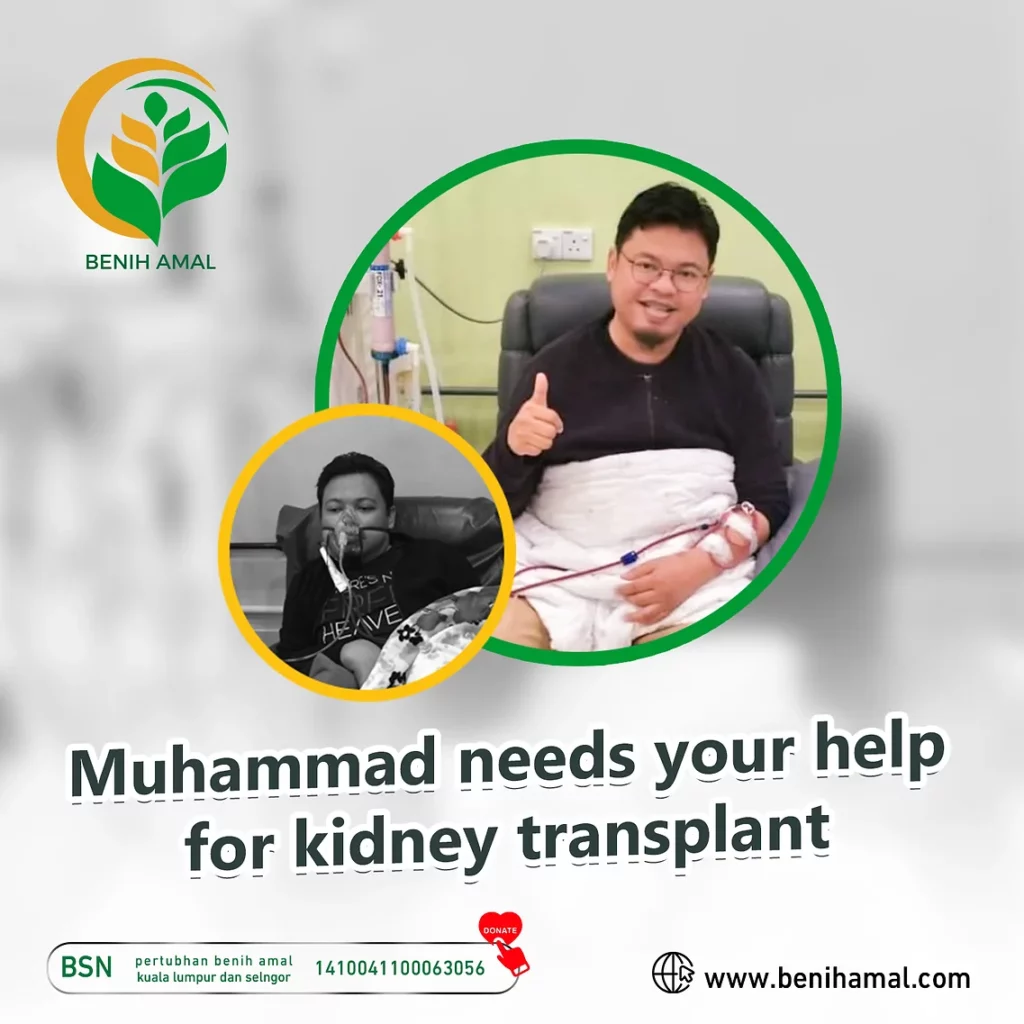Muhammad Needs Your Help For Kidney Transplant
RM0 of RM6,415 raised
Notice: Test mode is enabled. While in test mode no live donations are processed.
Story Background:
Muhammad is linving in Terengganu with his wife and he is struglining with the end stage of Kidney failure since 2019, until now still on dialyasis 3 times a week, Muhammad's next endeavor will be kidney transplant RM140 K.
End-stage renal disease, also called end-stage kidney disease or kidney failure, occurs when chronic kidney disease the gradual loss of kidney function reaches an advanced state. In end-stage renal disease, the kidneys no longer work as they should to meet the body's needs.
With end-stage renal disease, the patient need dialysis or a kidney transplant to stay alive. But he can also choose to opt for conservative care to manage his symptoms aiming for the best quality of life during his remaining time.
What is the kidney Transplant??
Kidney transplant is a medical procedure in which a healthy kidney is transplanted into a person with end-stage renal disease (ESRD) or other kidney diseases that have caused irreversible damage to the kidneys. The transplanted kidney takes over the function of the failed kidneys and enables the recipient to live without the need for dialysis.
Before a kidney transplant can be performed, a thorough medical evaluation is carried out to determine the suitability of the recipient for the procedure. The evaluation includes blood tests, imaging tests, and a review of the recipient's medical history. The donor is also evaluated to ensure that the kidney is a good match for the recipient and that the donor is healthy enough to undergo the surgery.
The kidney transplant surgery is usually performed under general anesthesia and typically takes several hours to complete. The surgeon places the new kidney into the recipient's lower abdomen and connects it to the recipient's blood vessels and urinary tract. The blood vessels are connected first, followed by the ureter, the tube that carries urine from the kidney to the bladder. The surgical incision is then closed, and the recipient is monitored closely in the hospital for several days.
